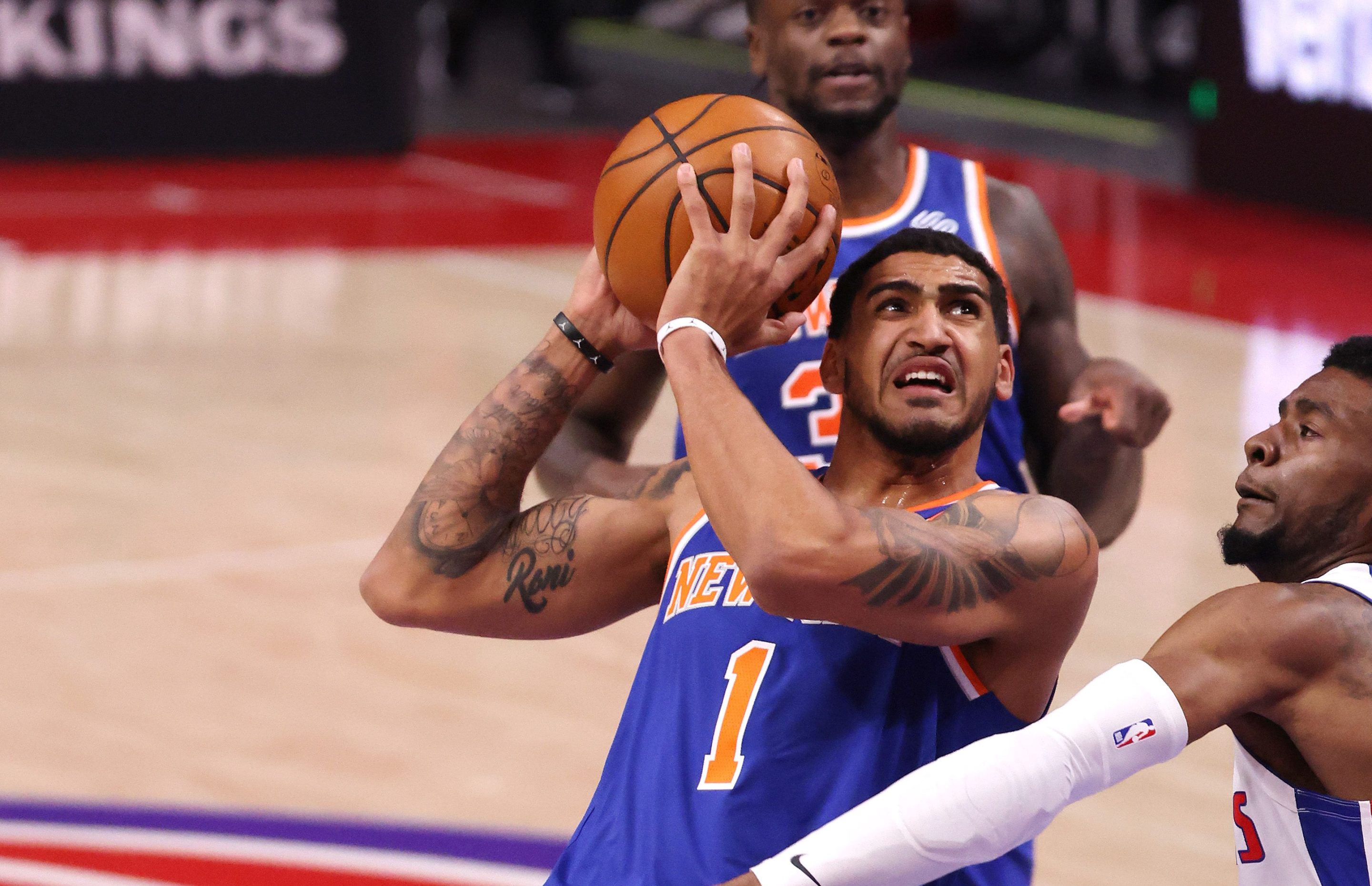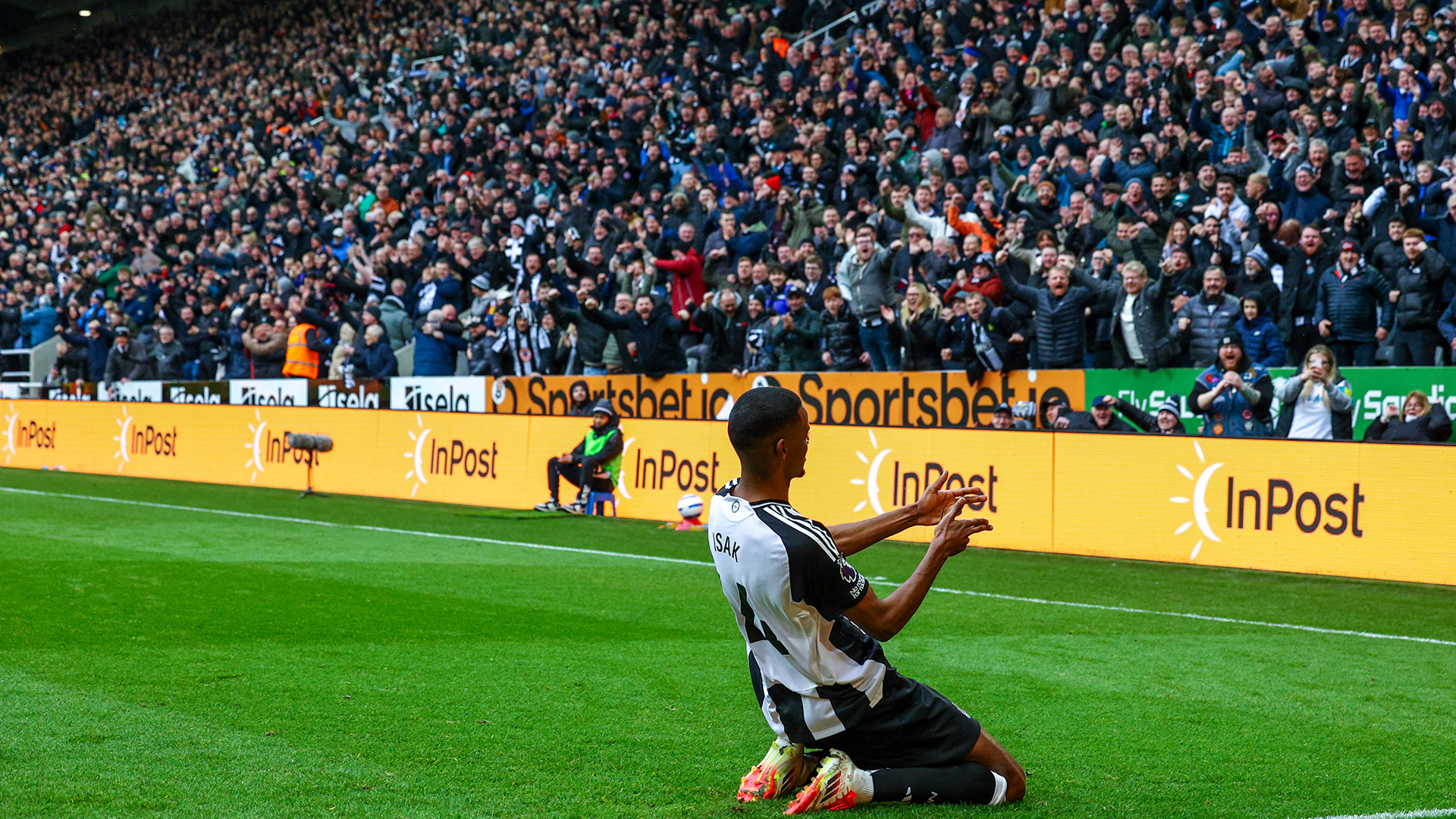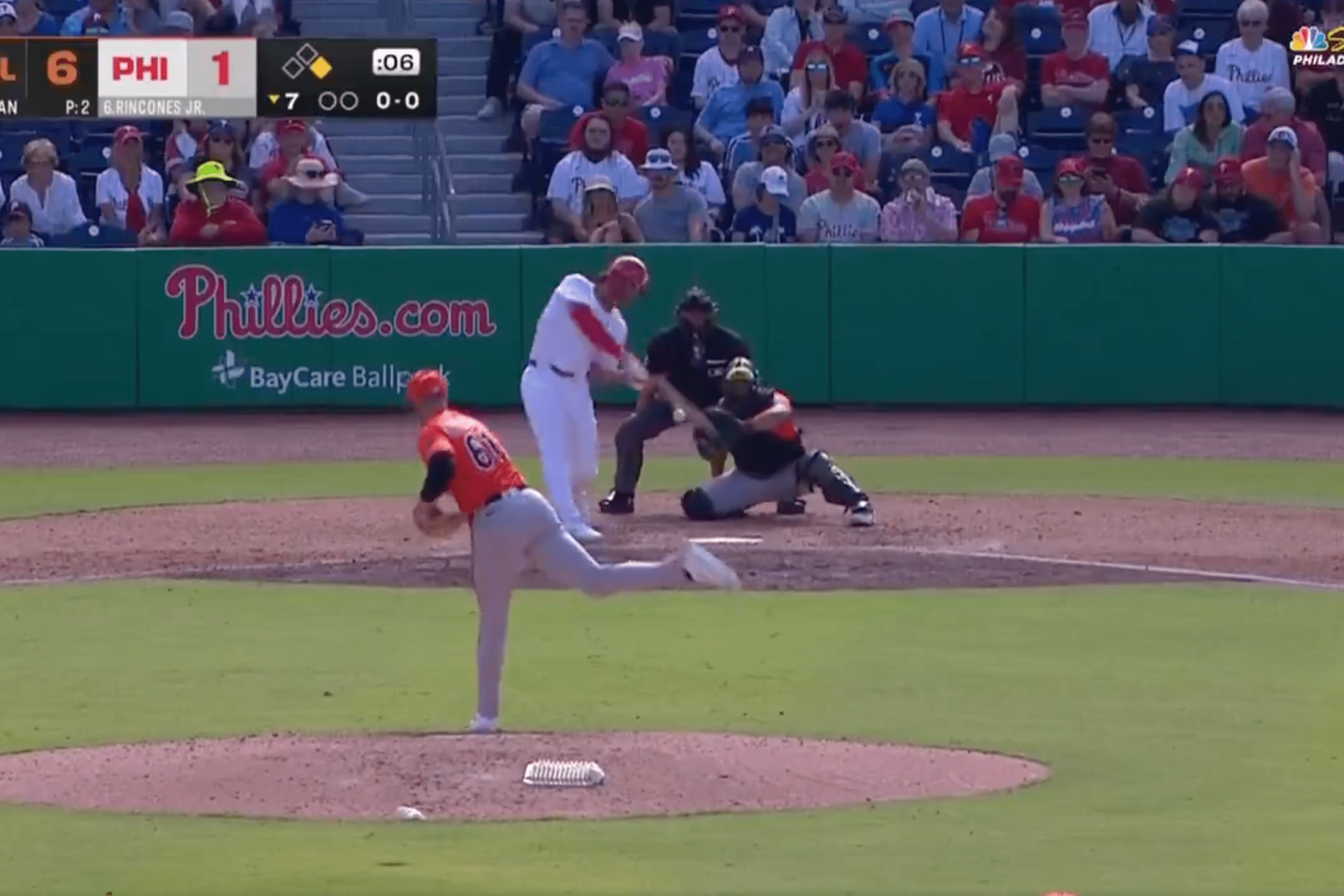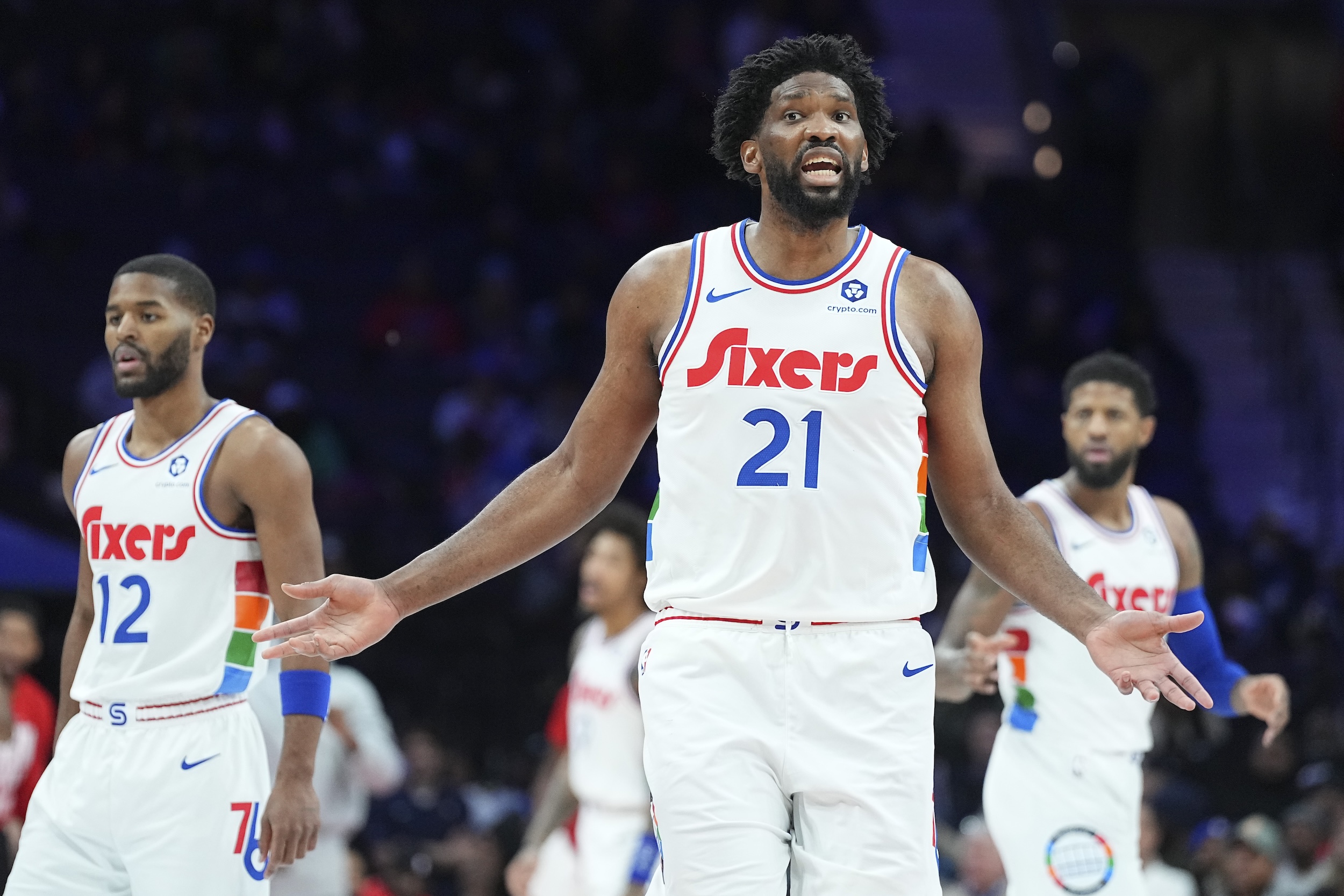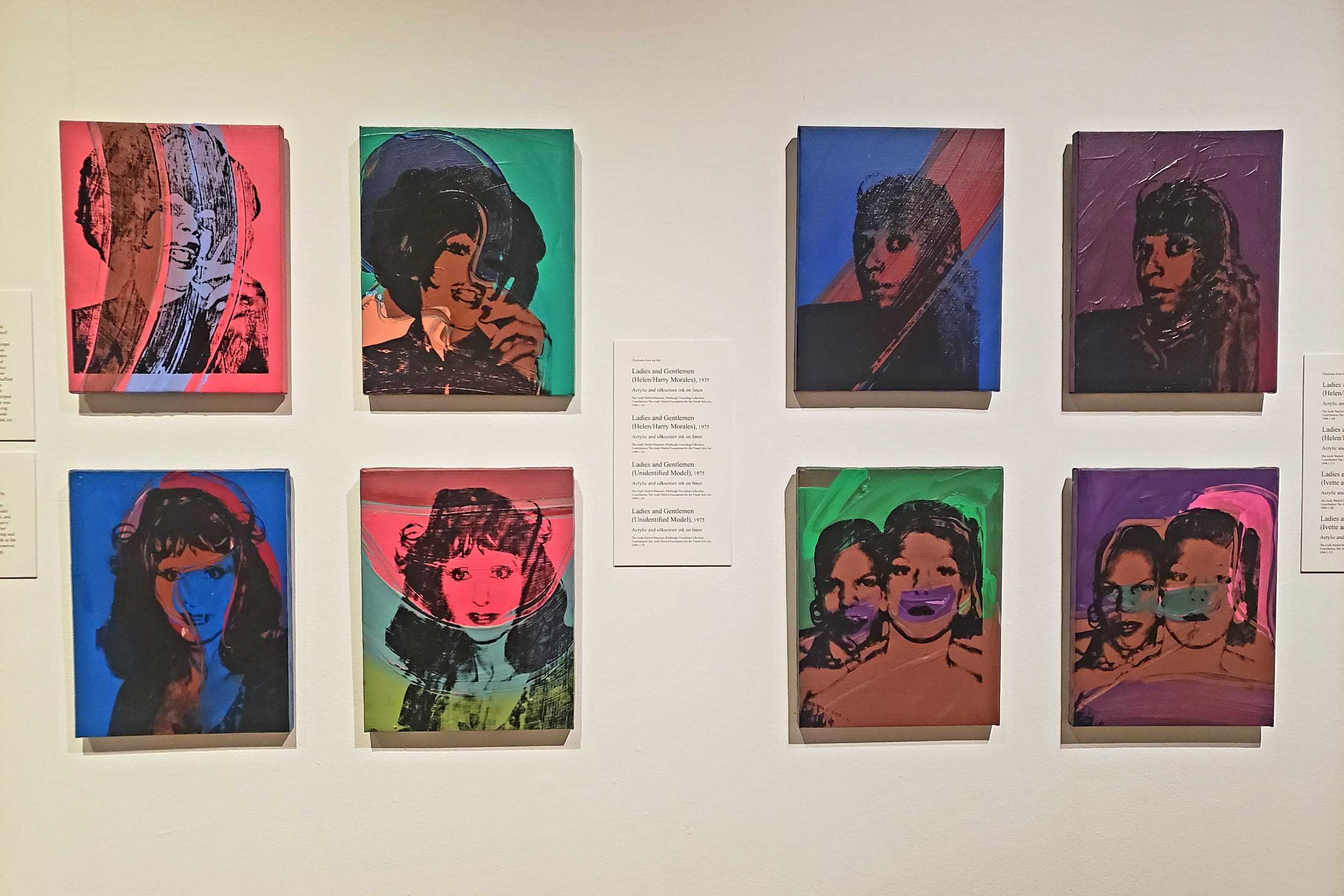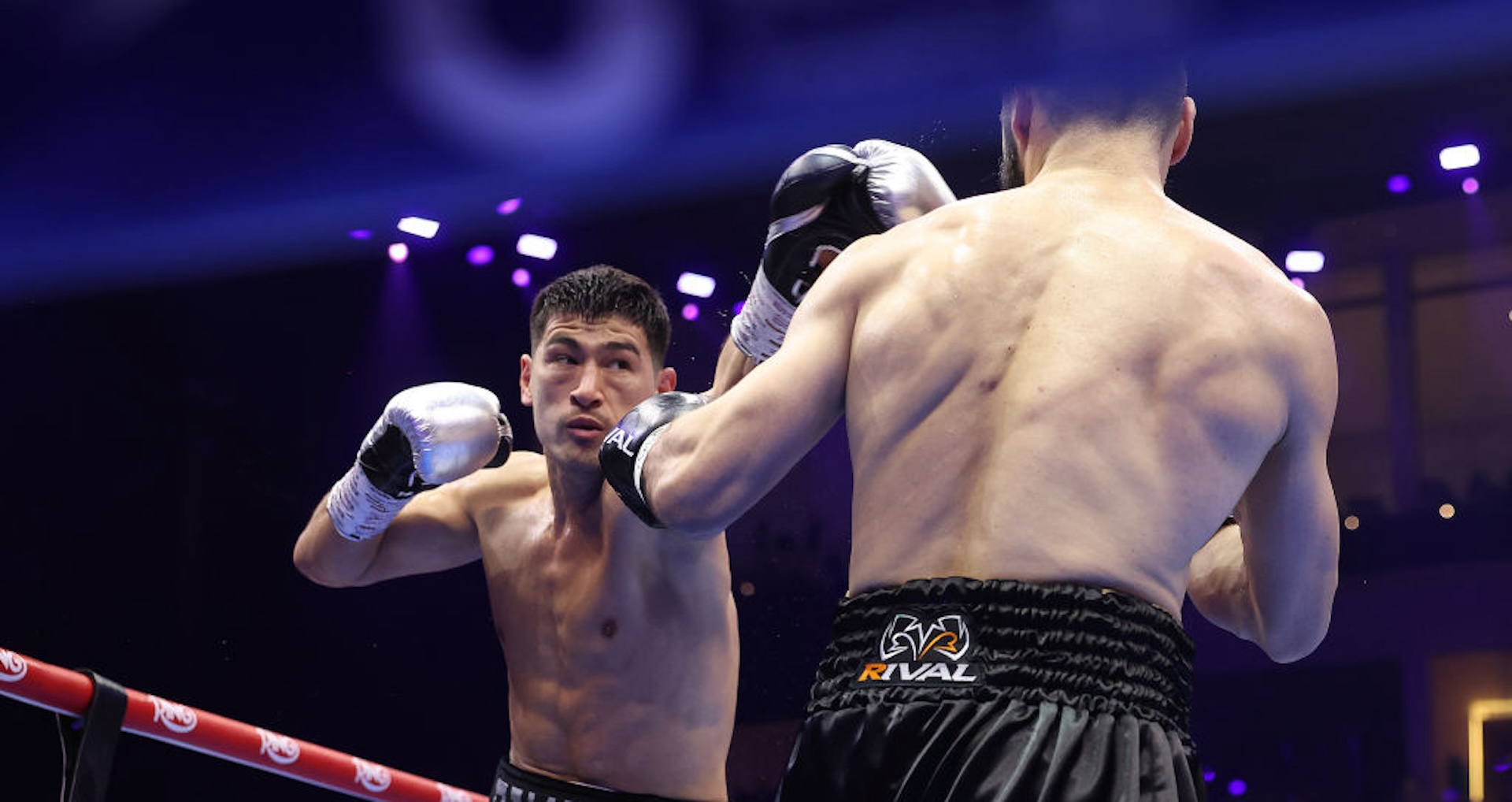Obi Toppin is so bad it makes you question the very idea of consensus. Though widely hailed as the most "league-ready" player in the 2020 lottery—which in retrospect was just a way to to spin an inconvenient fact (he's old) into an optimistic lie—the 23-year-old rookie has no business in the NBA. This is not a "low-ceiling, high-floor" prospect; the floor's somewhere in the earth's core. His minutes hurt to watch. Hunting for a single redeemable thing in them, on either side of the ball, is mostly futile. Last year's eighth-overall pick is the kind of bad that clouds the future: It's hard to see what Toppin even could be if things shook out right.
That makes it different from even rookie Frank Ntilikina bad, or rookie R.J. Barrett bad; with those badnesses, it was still possible, with a little squinting, to see the faintest outlines of a functional role player. Frank at his absolute squirreliest on offense could still defend multiple positions; Barrett could use his outlier strength to muscle his way to the hoop and kick it out to shooters—and, will you look at that, he's now well on his way to figuring it out. Even a debugged Kevin Knox can give you spacing and the simplest of straight-line drives against a closeout. There was something there. There was a model to build towards. If this blog is now too dense with the smog of defective Knicks lottery picks, please find a well-aerated space and sit down for a bit before we proceed.
So what would this hypothetical Good Obi do? The most important mandate for Good Obi would be to offset the inescapable Bad parts. Toppin is a defensive abomination, which armchair-biomechanics types tend to chalk up to his high and stiff hips, and I can indeed confirm with my expert eyes that he has the approximate shape of a plantain. He cannot backpedal, cannot recover, has rec-league instincts and awareness; even in college, he was hopeless at a range of different pick-and-roll coverages. Coach Tom Thibodeau has built the league's fourth-ranked defense out of lots of mediocre parts, but it is doubtful that even he can get something out of a player this limited. The NBA is getting no kinder to bigs who struggle to defend in space, and given those bleak realities, Good Obi has to give his team a lot on offense to come out in the black. Ideally, he'd have a lot of versatility on that end of the floor to make up for the ghastly things happening on the other end. The theory of Obi pre-draft, aside from just "jump high," was a stretch-big who had lot of options after setting a screen: Make a smart pass in the short roll, pop out to the arc, or put pressure on the rim with that famed leaping ability.
One would think that these are the kinds of situations you'd want to give him a lot of reps in, until he got a feel for making the right decisions at game speed. But he has not actually gotten much burn while doing the things he should be working to get better at. In truth, he's spent a lot of time with his ass just parked in the corner. As of mid-March, he had airballed as many corner threes as he had made. At time of writing, he has shot 52 threes, made 29 percent of them, and failed to make contact with the rim on 13 percent of them. This is not what he's used to doing on a basketball court—or what he should be doing, on any sane theory of his value. But it's happening for a number of reasons, which lie well beyond poor Obi's control. The Knicks are in the playoff hunt, which gives them less leeway to throw an unformed rookie on the floor to sponge up lots of minutes. Thibs, for all his virtues, has never met a veteran he didn't want to grind to a fine powder and is using a heroic Julius Randle 37 minutes a night, second only to James Harden. Toppin nominally plays the same position as Randle. Finally, having the second-worst spacing in the league complicates life for an overwhelmed big man who just wants to bounce around in the paint. This all makes it challenging to find game situations and specific lineups where squeezing Toppin into the rotation wouldn't be damaging to the team's larger ends.
But developing a lottery pick who is already 23—or at the very least figuring out what the hell he can do—should be a rather large end for a team that is, let's be real, going nowhere at the moment. And role matters. Here is the apparently outlandish hypothesis of this piece: Developing players should get reps that are relevant to the role they would theoretically play in the NBA. They should practice the things they are going to do. If it turns out that this is not possible to achieve in the normal flow of the season, then they should go play somewhere else to get those reps. Why not a long stint in the G League? Maybe we should think about the shifting role of the developmental league; suddenly it's become an alternative to college for upcoming lottery names like Jalen Green and Jonathan Kuminga. Why not a rehabilitation center for last year's struggling names? And if a trip to the G League is ruled out due to misplaced pride, or hand-wringing about the optics of "giving up" on a lauded draft pick, that's short-sighted. I'd contend that "giving up" on Obi Toppin looks a lot more like letting him bonk corner threes off the top of the backboard; he's doing plenty of that, and it doesn't seem to be a balm for his confidence. What's certain is it's not making him any better at spot-up shooting. Is it psychologically fruitful for a guy who was just one of the most productive players in college basketball to see himself fail this consistently while miscast in a role no one envisioned for him?
Our suffering Wizards pals report the same frustration watching Deni Avdija, a feisty playmaker with bright flashes early in the season, grow dispirited and gather dust 27 feet from the hoop while Russell Westbrook achieves self-actualization: under-50 percent true-shooting, over-30 percent usage rate. So while some of the developmental challenge might have to do with the small-mindedness of coaches and front offices, some of it might have to do with the way basketball is played now. Modern heliocentric offenses keep the ball in the hands of a lone decision maker like Randle or Westbrook, which creates, in the negative space, that newfangled position called "just sort of stand over there." But if you have a prospect that is supposed to do cool stuff with the ball, like, say, the Oklahoma City Thunder's Aleksej Pokusevski, why not let them rip at a lower level of competition? That's the youngest dude in the NBA, and he has had some putrid stretches of play as a rookie, but after a restorative stint on the Oklahoma City Blue he's now putting up cool lines and wild highlights in the actual league. He's not good yet, but he's at least practicing the kinds of things that he might one day be good at it. OKC has no illusions that they are good; they have enough draft picks to populate a small nation state; they have fully accepted that they are bad and that the future lies in making their young players good. If only the league's other mediocrities could find the same honesty, their rookies would suffer less for it.
